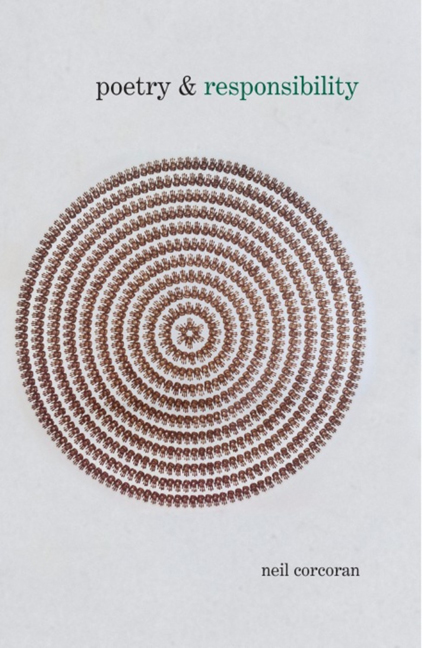2 - Isaac Rosenberg's Possessives
from PART I
Summary
‘Break of Day in the Trenches’, which I touched on briefly in the last chapter, is Isaac Rosenberg's most celebrated poem and one of the best of the poems he wrote at the Front; and as such it is one of the best poems of the War itself. For anyone who knows what preceded it in Rosenberg's short career but substantial poetic output, it also seems almost a miracle of emotional sensitivity, ironic self-awareness and technical subtlety. W. B. Yeats, although he had recommended Rosenberg to Ezra Pound, refused an invitation to introduce a collection by the poet in 1922, saying that he found it ‘all windy rhetoric’. This misjudgement is as crass as that with which Yeats dismisses all the war poets in his notorious introduction to his Oxford Book of Modern Verse in 1936: that ‘passive suffering is not a theme for poetry’. However, while even of the pre-war work Yeats's judgement would be indiscriminately harsh, it would probably not be altogether too harsh. For the fact is that ‘Break of Day in the Trenches’ and others of Rosenberg's outstanding war poems follow on a body of work in which large ambition often almost poignantly outruns technical capacity and sureness of allusive touch.
The intensely difficult circumstances of Rosenberg's youth – his origins, that is, in a penurious Jewish East End family, which had made his formal education nugatory – also provoked in him a high degree of partly defensive but seemingly arrogant self-assurance. Under the circumstances, this may appear admirable; but Jean Moorcroft Wilson's biography catalogues the ways in which it often hardened into an almost impenetrable self-absorption. This made Rosenberg a sometimes very difficult companion, tutee and even object of well-meaning if occasionally condescending patronage, and it can also be felt to diminish poetic force. Large social sympathy or even interest are not essential to the production of arresting poetry, but such things do need to be more adequately supplied for than they are in pre-war Rosenberg if the work is not to seem sustained by little more than an effortful, exhausting and ultimately self-undermining form of determination and self-determination.
- Type
- Chapter
- Information
- Poetry & Responsibility , pp. 27 - 39Publisher: Liverpool University PressPrint publication year: 2014



